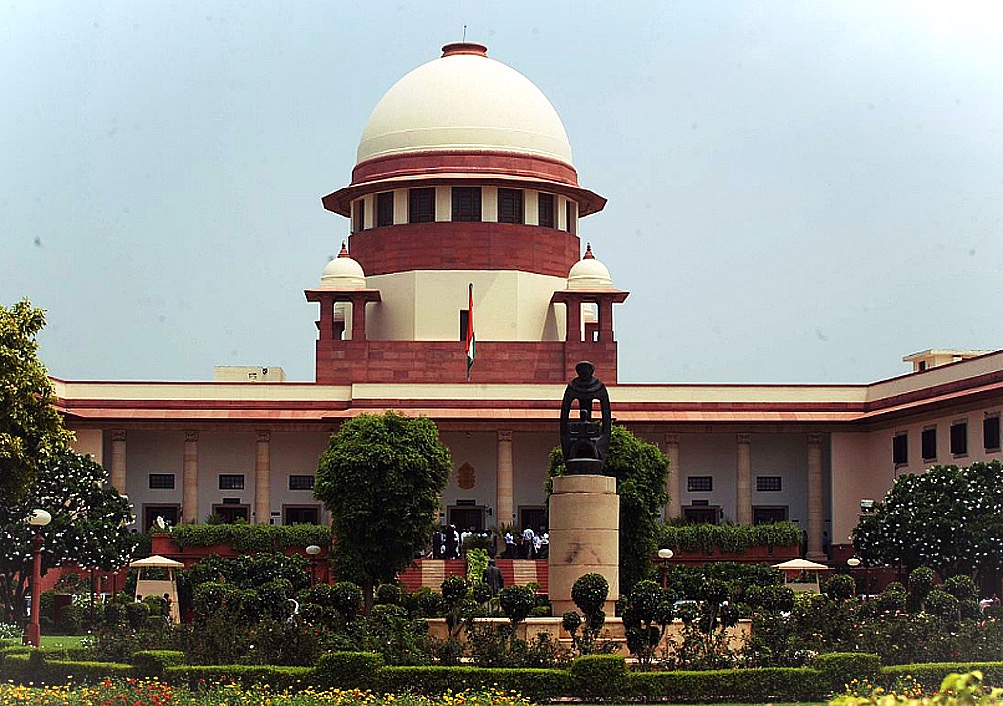Tribunal ruling is overturned, SC backs Tata decision to sack Cyrus Mistry

By LE Desk
New Delhi, March 26: The Supreme Court Friday put its stamp of approval on the decision by Tata Sons Ltd to remove Cyrus Pallonji Mistry as its Executive Chairman and Director in 2016 and also overturned the National Company Law Appellate Tribunal (NCLAT) order that quashed the conversion of Tata Sons into a private company from a public company.
The judgment brings the curtains down on one of the ugliest publicly-fought boardroom wars in the history of corporate India.
Setting aside NCLAT’s December 18, 2019, order, a bench led by Chief Justice S A Bobde said, “Thus in fine, all the questions of law are liable to be answered in favour of the appellants —Tata group, and the appeals filed by the Tata Group are liable to be allowed and the appeal filed by S.P. (Shapoorji Pallonji) Group is liable to be dismissed,” The Indian Express reported.
Overruling the NCLAT decision to reinstate Mistry, who was removed as Executive Chairman by the board of Tata Sons on October 24, 2016, the bench said his removal happened for “valid and justifiable reasons” and could not be termed as “oppressive or prejudicial in law”.
Mistry had succeeded Ratan Tata as Chairman of Tata Sons in 2012, but was ousted by the board four years later.
The court was also critical of Mistry’s conduct. His leaking of a mail dated October 25, 2016, to the media and sending replies to tax authorities even while continuing as a Director, justified his removal from the Directorship of Tata Sons and other group companies, it said. “A person who tries to set his own house on fire for not getting what he perceives as legitimately due to him, does not deserve to continue as part of any decision making body (not just the Board of a company),” it said.
The SC said the arguments offered for winding up of Tata Sons “lose sight of the nature of the company”. “…Tata Sons is a principal investment holding Company, of which the majority shareholding is with philanthropic Trusts… The dividends that the Trusts get are to find their way eventually to the fulfilment of charitable purposes. Therefore, NCLAT should have raised the most fundamental question whether it would be equitable to wind up the Company and thereby starve to death those charitable Trusts, especially on the basis of uncharitable allegations of oppressive and prejudicial conduct,” the court said.
The top court sought to remind the Tribunal that “the purpose of an order both under the English Law and under the Indian Law… is to bring to an end the matters complained of by providing a solution”. “The object cannot be to provide a remedy worse than the disease. The object should be to put an end to the matters complained of and not to put an end to the company itself, forsaking the interests of other stakeholders,” it said.
“The Tribunal,” said the court, “should always keep in mind the purpose for which remedies are made available under these provisions, before granting relief or issuing directions. It is on the touchstone of the objective behind these provisions that the correctness of the four reliefs granted by the Tribunal should be tested. If so done, it will be clear that NCLAT could not have granted the reliefs of (i) reinstatement of CPM (ii) restriction on the right to invoke Article 75 (iii) restraining RNT (Ratan N Tata) and the Nominee Directors from taking decisions in advance and (iv) setting aside the conversion of Tata Sons into a private company”.
Article 75 of the Articles of Association dealt with the company’s power of transfer and said the company may, at any time by a Special Resolution, resolve that any holder of ordinary shares can transfer his ordinary shares.
The Court also said that “NCLAT was completely wrong in holding as though Tata Sons, in connivance with the Registrar of Companies did something clandestinely, contrary to the procedure established by law. The request made by Tata Sons and the action taken by the Registrar of Companies to amend the Certificate of Incorporation were perfectly in order”. The SC set aside “all the observations made against the appellants and the Registrar of Companies” in the NCLAT judgement.
https://indianexpress.com/article/india/ratan-tata-cyrus-mistry-supreme-court-7247192/
Sign up for our weekly newsletter to stay up to date on our product, events featured blog, special offer and all of the exciting things that take place here at Legitquest.




Add a Comment